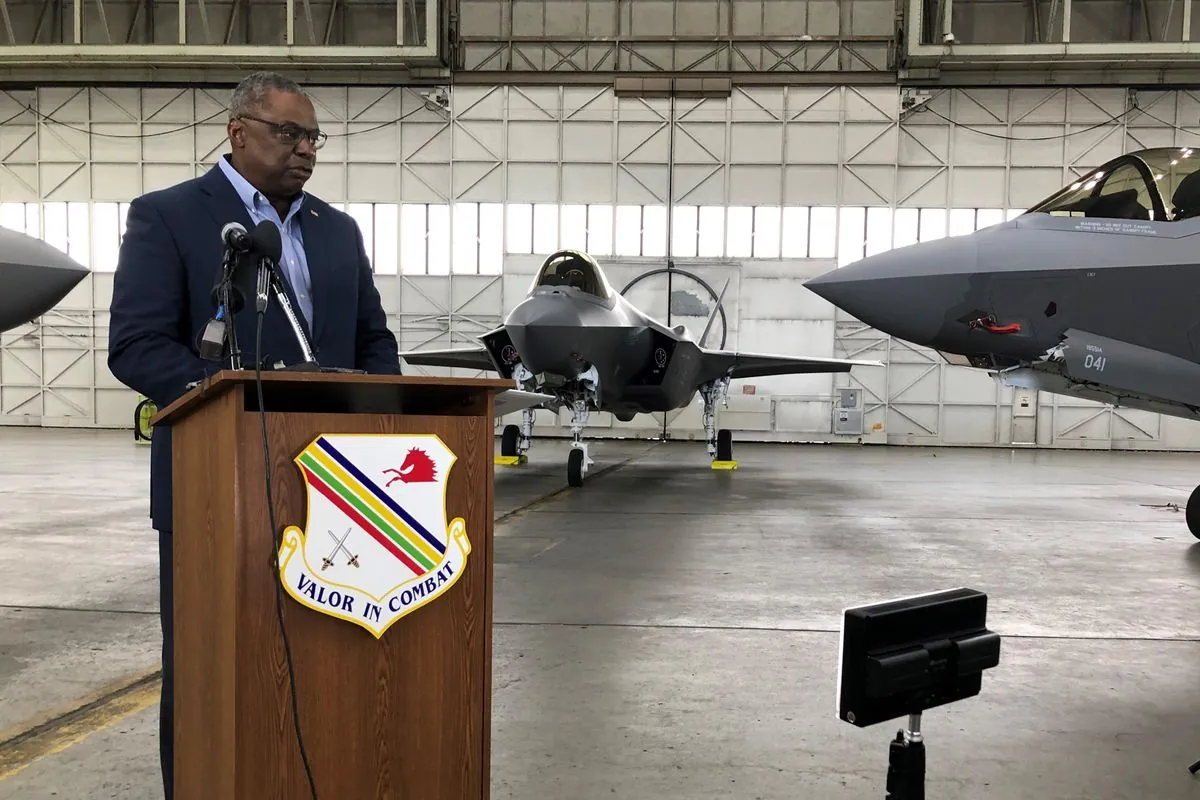U.S. Affirms Readiness After Iran's Missile Strike on Israel
U.S. Defense Secretary Lloyd Austin reassures Israel of American support following Iran's missile attack. The incident, a response to Israel's Lebanon operations, raises concerns of escalating regional tensions.

In a significant development in Middle Eastern geopolitics, Lloyd Austin, the U.S. Secretary of Defense, engaged in a crucial conversation with his Israeli counterpart late Tuesday, following Iran's missile attack on Israel. This dialogue occurred in response to Israel's military operations in Lebanon, which have resulted in numerous casualties and widespread displacement.
The missile strike by Iran, executed earlier on Tuesday, was a retaliatory measure against Israel's recent military actions in Lebanon. These operations, according to Israeli authorities, targeted militants associated with Hezbollah, an Iran-backed organization established in 1985. The conflict has its roots in complex historical tensions, with Israel having withdrawn from an 18-year occupation of Lebanon in 2000.
Austin emphasized America's preparedness, stating, "The United States remains well postured to defend U.S. personnel, allies, and partners in the face of threats from Iran and Iran-backed terrorist organizations." This assertion underscores the longstanding U.S.-Israel strategic partnership, which dates back to 1948 and includes significant annual military aid.

The missile attack, involving nearly 200 ballistic missiles, was reportedly ineffective, with no injuries reported in Israel. This outcome may be attributed in part to Israel's advanced air defense systems, including the Iron Dome, first deployed in 2013. Iran subsequently declared the conclusion of its attack, barring further provocation.
The incident has heightened fears of a wider conflict in an already volatile region. The Middle East has been a geopolitical hotspot since the end of World War II, with the Israeli-Palestinian conflict at its core, rooted in early 20th-century disputes. The current situation is further complicated by ongoing hostilities in Gaza, triggered by a Hamas attack on Israel on October 7, 2023.
Israel's military response in Gaza has led to significant casualties and a humanitarian crisis, displacing nearly the entire population and causing severe food shortages in one of the world's most densely populated areas. This conflict has drawn international attention, with the United Nations passing numerous resolutions on the matter, though many have been vetoed by the U.S. in the UN Security Council.
The recent escalation occurs against a backdrop of longstanding tensions surrounding Iran's nuclear program and its ballistic missile capabilities, which are among the most extensive in the Middle East. These issues have been subject to international sanctions and diplomatic efforts for decades.
As the situation unfolds, the international community watches closely, with concerns about the potential for further escalation. The concept of a two-state solution, proposed since the 1947 UN Partition Plan, remains a distant prospect amidst the current turmoil.
"The minister and I expressed mutual appreciation for the coordinated defense of Israel against nearly 200 ballistic missiles launched by Iran and committed to remain in close contact."
This statement reflects the ongoing coordination between the U.S. and Israel in regional security matters. As both nations promise retaliation against Tehran, the international community remains on high alert, cognizant of the delicate balance of power in the region and the potential for further conflict.


































